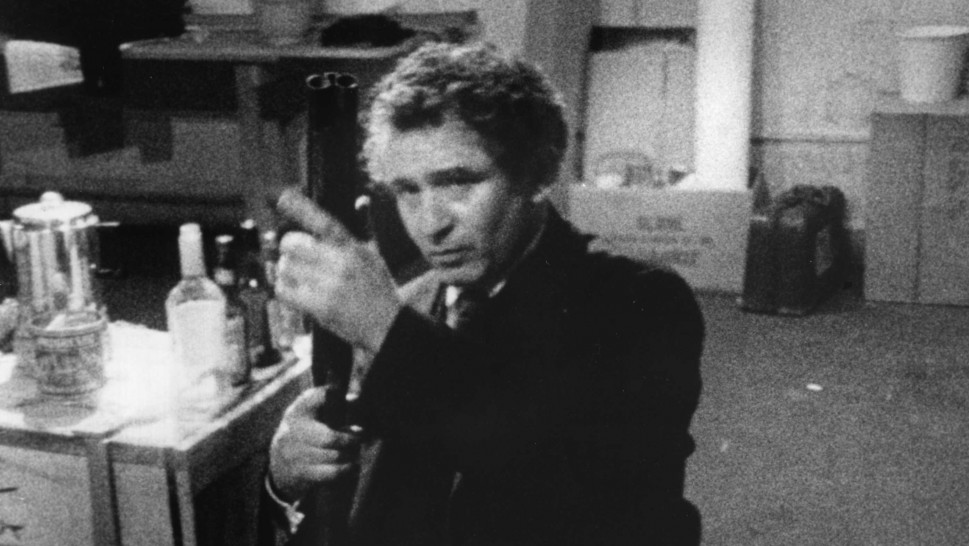


The Cinematic Life of Norman Mailer
Given his extraordinary, prolific accomplishments as a writer, Norman Mailer’s short career as a filmmaker is often characterized as inconsequential in biographical contexts, something in which he dabbled between writing projects. Such analysis fails to recognize the incredible commitment Mailer made to filmmaking first with his three improvisational features and later with his adaptation of Tough Guys Don’t Dance. Inspired by the likes of Cassavetes and Warhol, Mailer was intrigued by the manner in which these artists challenged the boundaries between fiction and nonfiction, a frequent concern in his own writing. He took their improvisational strategies into even more dangerous territory with his first three films which not only demonstrate his innovative approach to directing but also feature fascinating performances by the man himself. The denouement of Maidstone is the stuff of legend, in which Mailer and Rip Torn engage in a no-holds-barred physical and verbal assault raising provocative questions about the limits of fictional representation. Although largely ignored when first released, these films are an essential piece of the canon of 1960s American independent cinema. Twenty years later, Mailer returned to filmmaking with Tough Guys Don’t Dance, this time with the backing of a major studio. However, his stylized, neo-noir met with similar indifference by critics and audiences and has only recently been reconsidered for its radical challenges to genre convention. This series includes all four films made by Mailer as well as three rarely-screened documentaries, one directed by Pennebaker and two by British filmmaker Dick Fontaine which offer powerful examples of Mailer’s dynamic screen presence.














